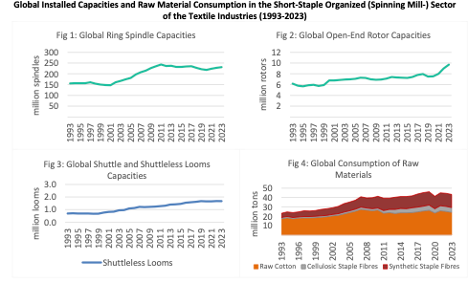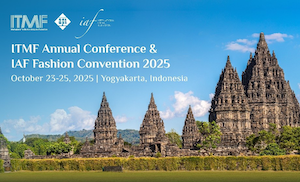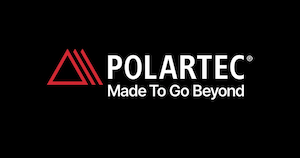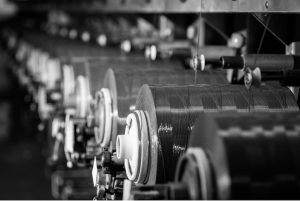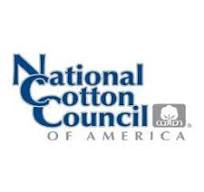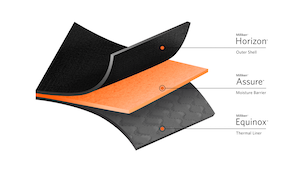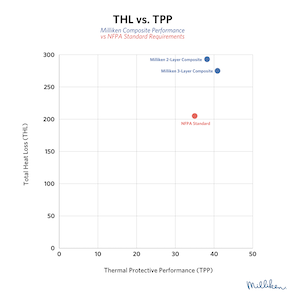 HO CHI MINH CITY, Vietnam — December 20, 2024 — Despite global challenges, Vietnam’s textile industry is poised for robust growth. This year, the country’s textile and garment exports are projected to reach $44 billion, reflecting an impressive increase of over 11 percent compared to the previous year. With more than 42 percent of local firms anticipating improved business performance in the fourth quarter, the Vietnam International Trade Fair for Apparel, Textiles and Textile Technologies (VIATT) stands out as a crucial event for the industry to continue its momentum. Scheduled for February 26-28, 2025, at the Saigon Exhibition and Convention Center (SECC), the fair will leverage Vietnam’s position as a leading textile and apparel manufacturing hub and provide opportunities to textile players from across ASEAN, Europe and beyond.
HO CHI MINH CITY, Vietnam — December 20, 2024 — Despite global challenges, Vietnam’s textile industry is poised for robust growth. This year, the country’s textile and garment exports are projected to reach $44 billion, reflecting an impressive increase of over 11 percent compared to the previous year. With more than 42 percent of local firms anticipating improved business performance in the fourth quarter, the Vietnam International Trade Fair for Apparel, Textiles and Textile Technologies (VIATT) stands out as a crucial event for the industry to continue its momentum. Scheduled for February 26-28, 2025, at the Saigon Exhibition and Convention Center (SECC), the fair will leverage Vietnam’s position as a leading textile and apparel manufacturing hub and provide opportunities to textile players from across ASEAN, Europe and beyond.
Spanning 15,000 square meters of exhibition space across Halls A and B1, VIATT will once again showcase a comprehensive range of products and solutions that encompass the full textile spectrum, including apparel fabrics and accessories; yarns and fibers; garments; home and contract textiles; technical textiles, nonwovens and equipment; and various certifiers and solutions providers. This edition will place a strong emphasis on ‘what’s next’ in the industry, by introducing Econogy Hub and the Innovation & Digital Solutions Zone, respectively highlighting the industry’s movement towards sustainability and technological innovation.
The fair will feature robust international exhibitor participation, especially in the dedicated country / region pavilions and zones from India, Japan, Korea, Pakistan, Taiwan, and Thailand, as well as the inaugural European Zone. Highlighted European exhibitors include:
- Bossa Ticaret Ve Sanayi Isletmeleri TAS (Türkiye; Apparel fabrics & fashion): established in 1951, Bossa is one of Türkiye’s largest integrated textile corporations. It offers a wide range of high-quality denim fabrics, with a high dyeing and finishing production capacity.
- Chargeurs PCC Asia Limited (France; Apparel fabrics & fashion): a leading global provider of inner component solutions, the company produces over 350 million metres of interlinings annually across seven production sites worldwide, catering to diverse markets ranging from luxury to athleisure.
- Hohmann GmbH & Co. Kg (Germany; Home & contract textiles): founded in 1907, Hohmann offers a wide range of production with high-shelf warehousing that ensures immediate supply with a diverse stock. Its expanded production space has now reached 30,000 sqm, housing 330 Dornier weaving machines with a daily capacity of 45,000 metres.
- Technical Absorbents Ltd (UK; Technical textiles & technologies): a trusted brand in the superabsorbent and nonwovens industries, this company has been innovating its Super Absorbent Fibre (SAF™) technology for over 30 years, producing a diverse array of high-performance superabsorbent materials.
Other notable exhibitors include Albini 1876 – Thomas Mason (Italy), displaying premium shirting fabrics; Alumo AG (Switzerland), featuring top quality STeP by OEKO-TEX-certified cotton fabrics, and Homeplus (Germany), presenting carpets and rugs with special features such as 3D patterns that add a playful dimension and texture.
VIATT 2025 will also serve as a vital platform to provide Vietnamese and international buyers with access to innovative textiles and technologies from leading exhibitors across Asia. While Japan remains the second-largest destination for Vietnam’s apparel exports[3], the country is also a steady supplier in many textile categories. Hoping to attract new export business at the show, key Japanese exhibitors include:
- Murata Machinery (Technical textiles & technologies): Murata is a world-leading textile machinery company. Its signature product, VORTEX, utilises air technology to produce yarns with a unique structure. This product also promotes sustainability through it’s high productivity and energy efficiency.
- Tamurakoma & Co (Apparel fabrics & fashion): established in 1894, the enterprise will display functional fabrics, such as POLICOTT and Comfeel, highlighting innovative Japanese technology and products made in Japan and Vietnam.
- Toyoshima & Co (Apparel fabrics & fashion): over nearly two centuries, Toyoshima has adapted to evolving market needs, engaging in the entire process from raw material to final product delivery, and remains dedicated to continuous, comprehensive fashion development.
Joining them are Stylem Takisada-Osaka, a premier fabric manufacturer, overseeing the entire manufacturing journey from raw materials to finished apparel products; Takisada Nagoya, featuring high-quality apparel products made by a robust network of spinning facilities, weavers, knitters, and dye works; and Toyobo Textile Co, presenting fabric and sewn products that meet high Japanese standard.
Other Asian exhibitors include: IDFL Vietnam (Vietnam) and Honest Rich Pacific (Hong Kong) in Apparel Fabrics & Fashion Zone; Sigma Vietnam Industrial (Vietnam) and Youngdo Velvet (Korea) in Home & Contract Textiles Zone; as well as AiDLab (Hong Kong), JB Ecotex (India), and Rovitex Asia (Thailand) in Technical Textiles & Technologies Zone.
With VIATT 2025 welcoming exhibitors from across Europe and Asia’s diverse textile sectors, the fair is set to enhance its status as a top sourcing destination for the ASEAN region, and buyer delegations from Malaysia, Myanmar, Thailand, and beyond have already confirmed their participation next year.
The Vietnam International Trade Fair for Apparel, Textiles and Textile Technologies (VIATT) is organised by Messe Frankfurt (HK) Ltd and the Vietnam Trade Promotion Agency (VIETRADE), covering the entire textile industry value chain. For more details on this fair, please visit www.viatt.com.vn or contact viatt@hongkong.messefrankfurt.com.
VIATT will be held from February 26 – 28, 2025.
Other upcoming shows:
- Intertextile Shanghai Apparel Fabrics – Spring Edition / Intertextile Shanghai Home Textiles – Spring Edition / Yarn Expo Spring — March 11 – 13, 2025, Shanghai
- Intertextile Shenzhen Apparel Fabrics / Yarn Expo Shenzhen — June 11 – 13, 2025, Shenzhen (Futian)
- Intertextile Shanghai Home Textiles – Autumn Edition — August 20 – 22, 2025, Shanghai
- Intertextile Shanghai Apparel Fabrics – Autumn Edition / Yarn Expo Autumn — September 2 – 4, 2025, Shanghai
- Cinte Techtextil China — September 3 – 5, 2025, Shanghai
Posted: December 20, 2024
Source: Messe Frankfurt (HK) Ltd
 CONOVER, N.C. — January 2, 2025 — The Manufacturing Solutions Center (MSC) at Catawba Valley Community College is partnering with the NC Small Business Center Network to present a free webinar, “Developing Your Apparel/Textile Product in the US,” on January 15 at 12 noon.
CONOVER, N.C. — January 2, 2025 — The Manufacturing Solutions Center (MSC) at Catawba Valley Community College is partnering with the NC Small Business Center Network to present a free webinar, “Developing Your Apparel/Textile Product in the US,” on January 15 at 12 noon.
